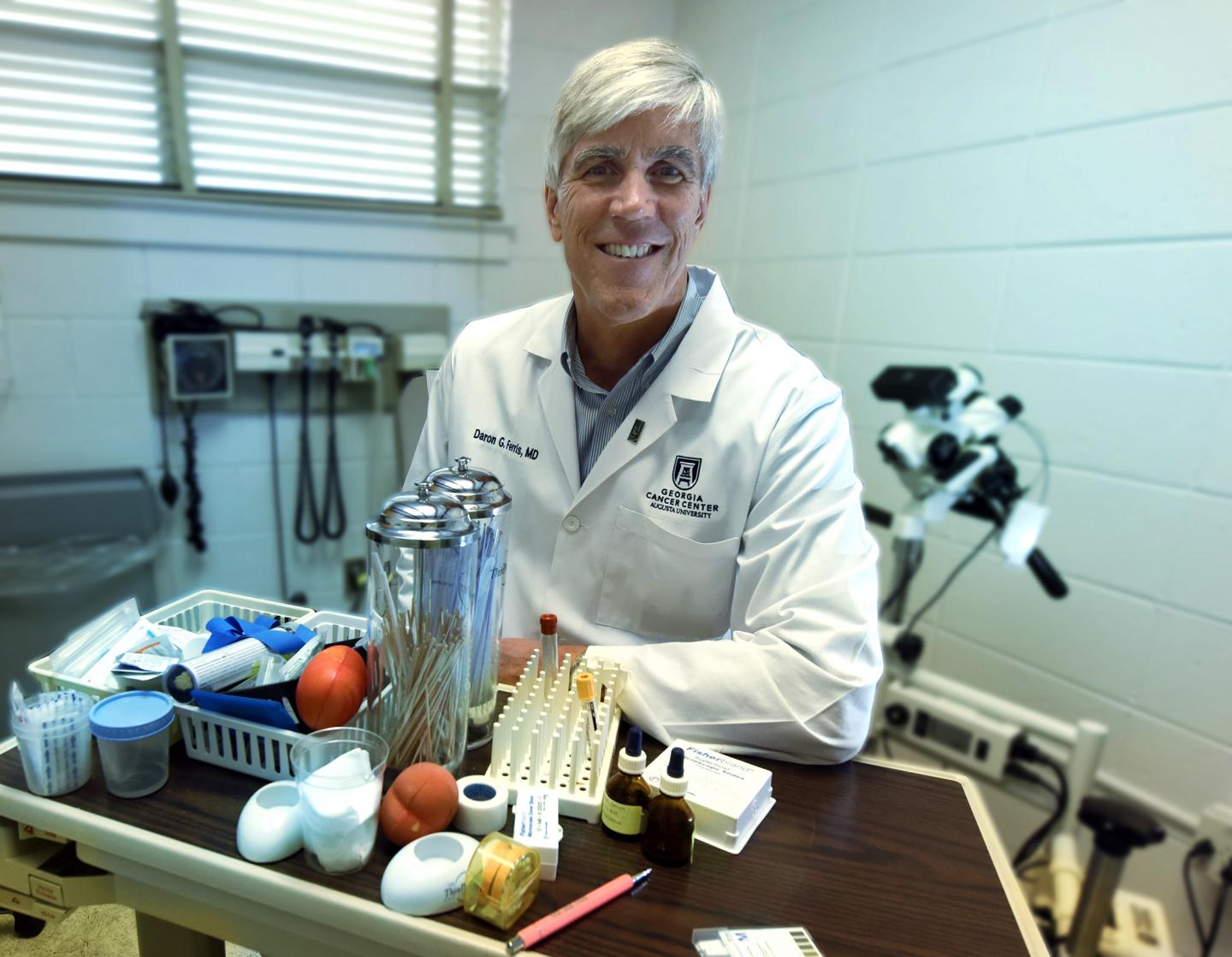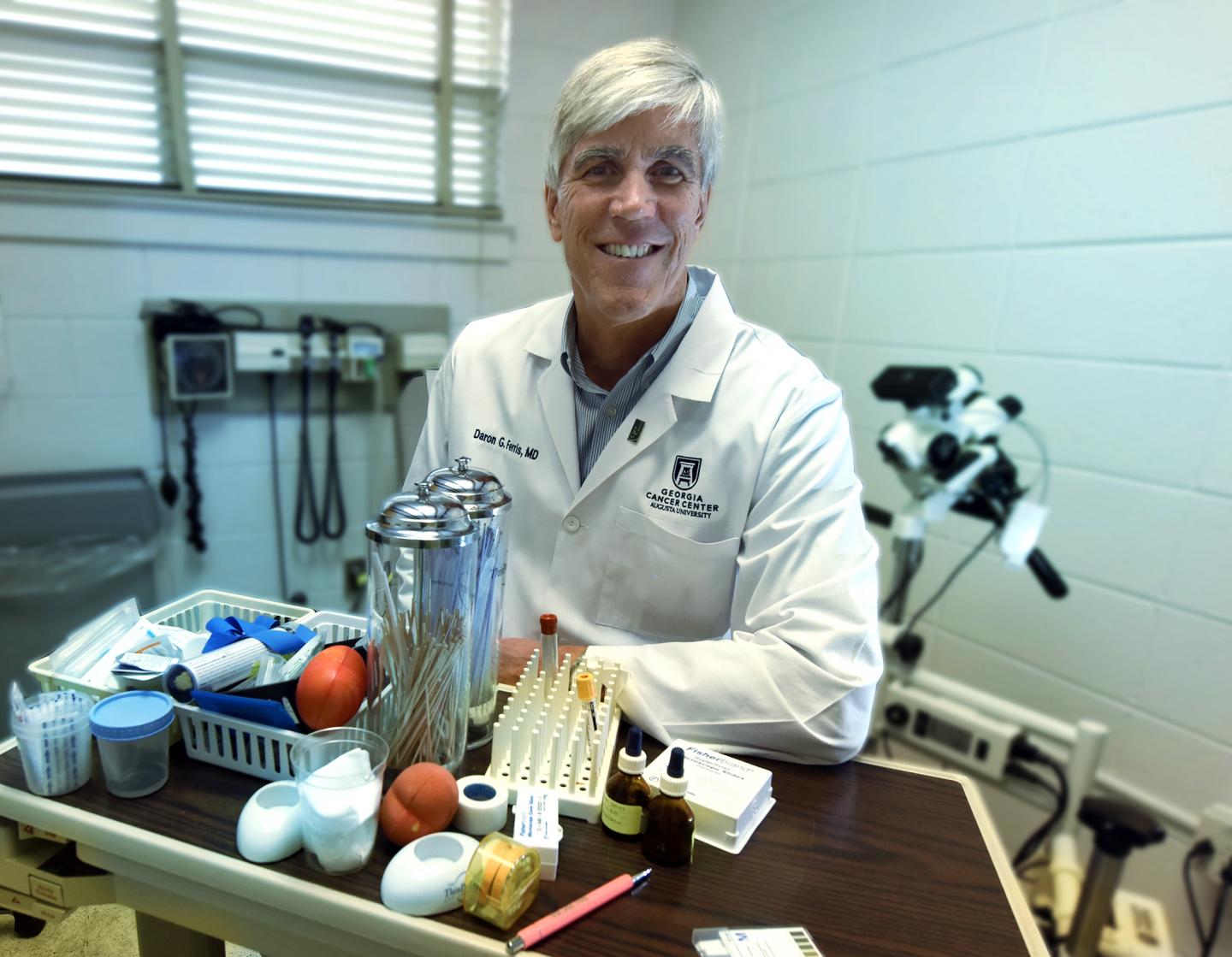
Credit: Phil Jones, Senior Photographer, Augusta University
AUGUSTA, Ga. (Nov. 29, 2017) – A decade of data on hundreds of boys and girls who received the HPV vaccine indicates the vaccine is safe and effective long term in protecting against the most virulent strains of the virus, researchers report.
The findings support more widespread and early administration of the HPV vaccine before preadolescents and adolescents are exposed to the nation's most common sexually transmitted infection and the most common cause of cervical cancer, they report in the journal Pediatrics.
Some 79 million Americans, most in their late teens and early 20s, are infected with human papillomavirus, according to the Centers for Disease Control and Prevention. About half of those are infected with the most virulent strains of the virus, which are targeted by the quadrivalent vaccine given to study participants.
"The vaccine was virtually 100 percent effective in preventing disease in these young individuals," says Dr. Daron G. Ferris, professor in the Department of Obstetrics and Gynecology at the Medical College of Georgia and at the Georgia Cancer Center at Augusta University.
The quadrivalent vaccine protects against HPV types 6, 11, 16 and 18. Types 16 and 18 account for essentially all cervical cancer and for most other HPV-related cancers like penile and anal cancers, according to the National Cancer Institute. Types 6 and 11 account for about 90 percent of genital warts as well as non-cancerous tumor growths in the respiratory tract.
No cases of disease related to these four HPV types were found in study participants, who received a three-dose regimen of the vaccine when they were ages 9-15 and sexually inactive, Ferris says.
Ferris, first author of the new study who led trials of the quadrivalent vaccine in 2002, says the earlier, shorter-term evaluation clearly indicated the vaccine worked.
"We also needed to look at long-term efficacy, safety and immunogenicity," he says. "We needed to answer questions like if we vaccinate earlier in life, will it last. The answer is yes, this cancer prevention vaccine is working incredibly well 10 years later. A booster vaccine likely will not be needed by these young people. I think now we have come full circle."
The study was the longest follow up to date on the vaccine. Follow-up data on safety and efficacy has been assessed at up to six years in women age 15-26 and the current team of investigators also looked at data on the large cohort of young people two years ago.
Participants were followed at 34 sites in nine countries, including MCG and the Georgia Cancer Center in Augusta. Initially about one third of the 1,661 study participants received placebo, however the placebo group also received the vaccine 30 months into the study so those individuals were followed a shorter period of time, the researchers note.
While all participants remained disease free, the earlier vaccinations produced the most robust initial and long-term antibody response, Ferris says, of levels of the infection fighters that can be measured in the blood.
While about two-thirds of infected individuals can eventually clear the virus, it persists and can cause a wide range of health problems in the remainder, Ferris says. The vaccination is designed to better arm everyone's immune system to eliminate the virus.
The Food and Drug Administration approved the first quadrivalent vaccine, Gardasil, in June 2006. The vaccine is currently approved for patients ages 9-26.
Effectiveness assessments included looking for genital warts, precancerous and cancerous growths on the cervix and genitals as well as persistent HPV infections. Effectiveness evaluation began at 3.5 years and continued twice yearly during the 10-year-period.
Two-dose vaccines that cover nine HPV strains are rapidly replacing the three-dose quadrivalent vaccine, Ferris says.
"Now we need to push for more young people to get vaccinated," he says. "We are doing miserably in the United States."
About 43 percent of U.S. teens are up to date on recommended doses of the HPV vaccine, according to the CDC. The HPV vaccine can be given along with the meningococcal and tetanus, diphtheria and pertussis vaccines, to 11- and 12-year-olds, the researchers note.
Study participants reported sexual activity rates similar to other studies and numbers of new sexual partners were higher among males than females. Other sexually transmitted diseases, including gonorrhea and chlamydia, were found in a small percentage of study participants over the years of follow up. Half of all sexually transmitted diseases occur in people age 15-24 and 1 in 4 sexually adolescent females have a sexually transmitted disease like chlamydia or HPV, according to the CDC.
###
The research was funded by Merck & Co., a health care company based in Kenilworth, New Jersey, that manufactures Gardasil.
Media Contact
Toni Baker
[email protected]
706-721-4421
@MCG_AUG
http://www.augusta.edu/mcg/





